HANDBOOK
OF ORAL HISTORY
HANDBOOK
OF ORAL HISTORY
Edited by
Thomas L. Charlton, Lois E. Myers,
and Rebecca Sharpless
With the assistance of
Leslie Roy Ballard

ALTAMIRA PRESS
A division of Rowman & Littlefield Publishers, Inc.
A wholly owned subsidiary of
The Rowman & Littlefield Publishing Group, Inc.
4501 Forbes Boulevard, Suite 200
Lanham, MD 20706
www.altamirapress.com
PO Box 317, Oxford, OX2 9RU, UK
Copyright 2006 by BAYLOR UNIVERSITY
All rights reserved. No part of this publication may be reproduced, stored in a retrieval system, or transmitted in any form or by any means, electronic, mechanical, photocopying, recording, or otherwise, without the prior permission of the publisher.
British Library Cataloguing in Publication Information Available
Library of Congress Cataloging-in-Publication Data
Handbook of oral history / edited by Thomas L. Charlton, Lois E.
Myers, and Rebecca Sharpless.
p. cm.
Includes bibliographical references and index.
ISBN-13: 978-0-7591-0229-3 (cloth : alk. paper)
ISBN-10: 0-7591-0229-5 (cloth : alk. paper)
1. Oral history. I. Charlton, Thomas L. (Thomas Lee) II. Myers, Lois E., 1946 . III. Sharpless, Rebecca.
D16.14.H36 2006
907'.2dc22
2005025536
Printed in the United States of America
 The paper used in this publication meets the minimum requirements of American National Standard for Information SciencesPermanence of Paper for Printed Library Materials, ANSI/NISO Z39.48-1992.
The paper used in this publication meets the minimum requirements of American National Standard for Information SciencesPermanence of Paper for Printed Library Materials, ANSI/NISO Z39.48-1992.
Contents
Thomas L. Charlton
Part I:
FOUNDATIONS
Rebecca Sharpless
Ronald J. Grele
Part II:
METHODOLOGY
Mary A. Larson
Linda Shopes
Charles T. Morrissey
James E. Fogerty
Elinor A. Maz
Part III:
THEORIES
Alice M. Hoffman and Howard S. Hoffman
Kim Lacy Rogers
Eva M. McMahan
Sherna Berger Gluck
Mary Chamberlain
Part IV:
APPLICATIONS
Richard Cndida Smith
Valerie Raleigh Yow
Jeff Friedman
Charles Hardy III and Pamela Dean
Acknowledgments
Early in the planning stage for this project, we brought into the discussion some of the most authoritative scholars in the field of oral history. These individuals assisted us in the choice of topics to cover and the appropriate authors to seek for each topic. Furthermore, they lent the prestige of their names to our work, identifying with our handbook as its Editorial Board. Our appreciation, then, is twofold to these, our advisors and our friends: Albert S. Broussard, Texas A&M University; James E. Fogerty, Minnesota Historical Society; Ronald J. Grele, Columbia University; Robert Perks, British Library; Linda Shopes, Pennsylvania Historical and Museum Commission; Richard Cndida Smith, University of California at Berkeley; and Valerie Raleigh Yow, Chapel Hill, North Carolina.
The reader will recognize among our Editorial Board several of our authors, so our debt to them multiplies. Information about our authors unique contributions to the field of oral history appears in the back of this book. Among our authors are people so closely associated in the minds of oral historians with their specific topic that our handbook would fail without their participation. To our authors, then, we express appreciation for their collective willingness to participate in this project, often at great sacrifice to their own overflowing work schedules. We thank them for putting down on paper their knowledge and experience with oral history and for patiently cooperating with us from start to finish. We are pleased that their expertise will continue to inspire best oral history practice through their contributions to this book.
All three editors are faculty members at Baylor University, Waco, Texas, with strong ties to the universitys Institute for Oral History. The Institute is a freestanding program in the division of Academic Affairs, a position that allows us a broad interdisciplinary perspective. We report directly to a vice provost who is a scholar and teacher as well as administrator. In the years that we have worked on the handbook, three people have successively filled that office, granting us encouragement and resources to complete the task. We owe much to these administratorsscholarsfriends: Dianna M. Vitanza, Department of English; Michael D. Beaty, Department of Philosophy; and James M. Bennighof, School of Music.
One of our greatest fortunes in the Institute for Oral History is the collegiality of our staff, whose faithful, consistent partnership allows us to pile special projects like this handbook on top of plates already overfilled. We are grateful to all of them. Becky Shulda, administrative associate, served as coordinator, handling correspondence with authors and filing articles and contracts as they arrived, always professionally, always sweetly, always quickly. Elinor Maz, senior editor, not only provided significant editorial advice, but also willingly tackled the handbooks article on the controversial but necessary topic of transcribing. Former senior editor Kathryn Blakeman contributed editorial advice and encouragement from the start. Although she now lives hundreds of miles north of Texas, Kathryn remains one of our team in spirit and continues to help us with occasional editing and indexing projects. Leslie Roy Ballard, a doctoral candidate in philosophy at Boston College and editor at the Institute for Oral History, devoted months of his time over the past year to keeping the handbooks notes and references in conformity to the style manual. He earned well the title of editorial assistant for this handbook. Graduate students Shawn Moser, of the Department of History, and Sarah Chism Carbajal, of the School of Social Work, assisted him in tracking down and verifying notes and references. Shawn also created the first draft of the full reference list from the individual articles. The Institutes other graduate assistants and our undergraduate editorial assistants played their parts, too, particularly by keeping up with the transcribing, auditing, and editing processes so vital to our program. Several of them took time from their usual projects to retype one of the articles for an author who has yet to surrender to the computer age. The staff members at the Baylor University Libraries, particularly Interlibrary Services, provided invaluable aid in making materials available to us.
We have learned much from our work on the handbook, and we have AltaMira Press to thank for the invitation to participate as its editors. Former editors Mitch Allen and Susan C. Walters responded to all our inquiries with patience and kindness. We are honored to have our names associated with theirs.
We believe in oral history, in its long-term significance as a means to transfer the past to the future through the voices of the present. We also believe in its immediate capacity to transform lives through the simple yet complex experience of people talking and listening to one another. Gathering these articles and making them accessible to a new generation of oral historians has been a pleasure for us, and we return now to our own oral history work better equipped to understand why we do what we do the way we do it and why that is a good thing.
Introduction
Next page

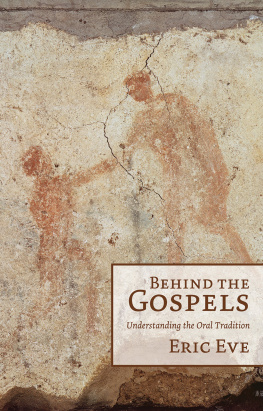
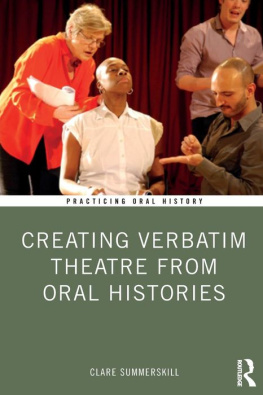
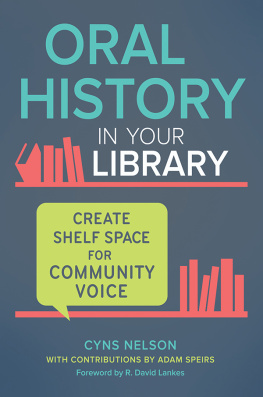
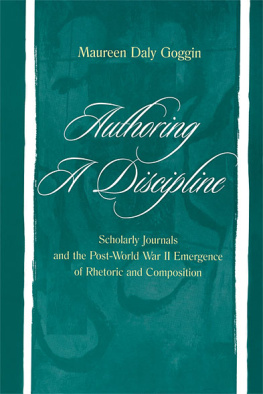
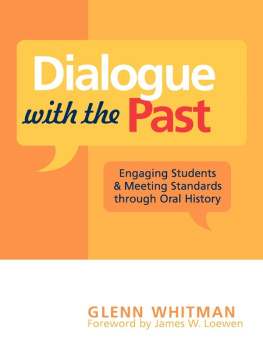

 The paper used in this publication meets the minimum requirements of American National Standard for Information SciencesPermanence of Paper for Printed Library Materials, ANSI/NISO Z39.48-1992.
The paper used in this publication meets the minimum requirements of American National Standard for Information SciencesPermanence of Paper for Printed Library Materials, ANSI/NISO Z39.48-1992.